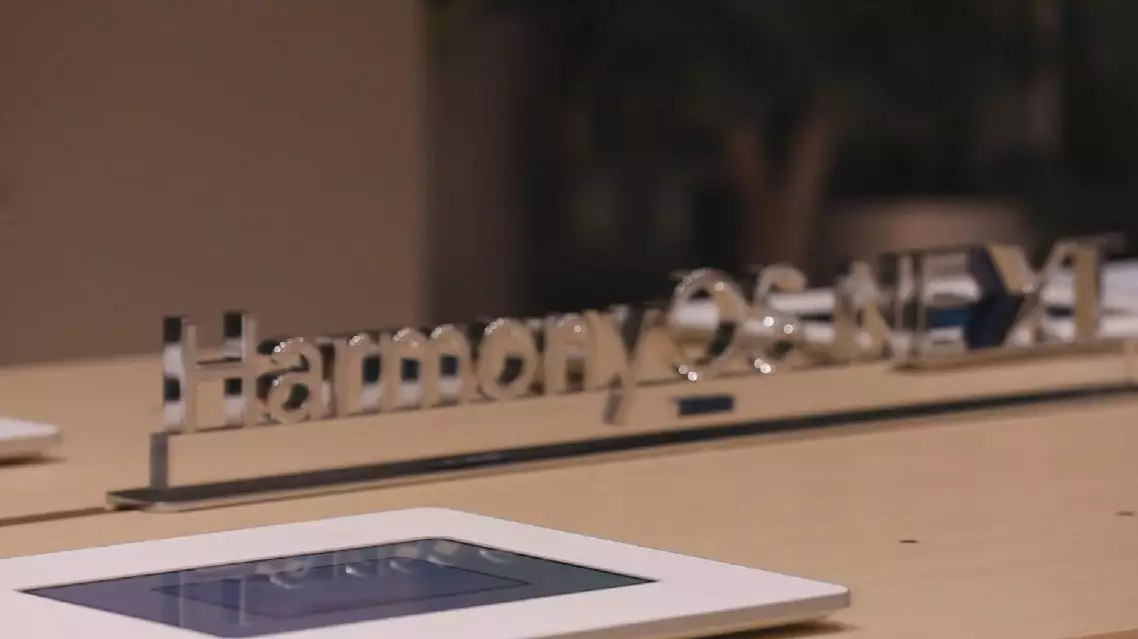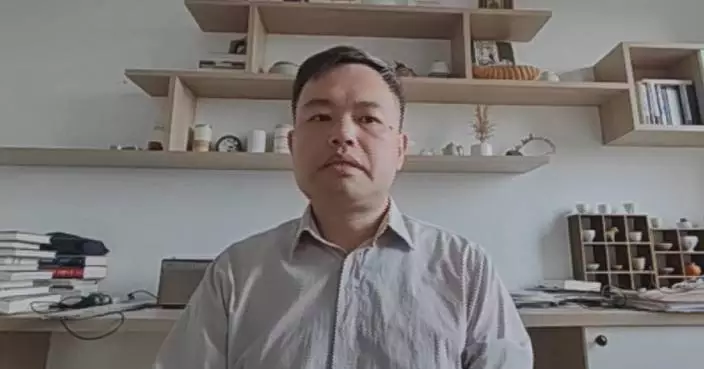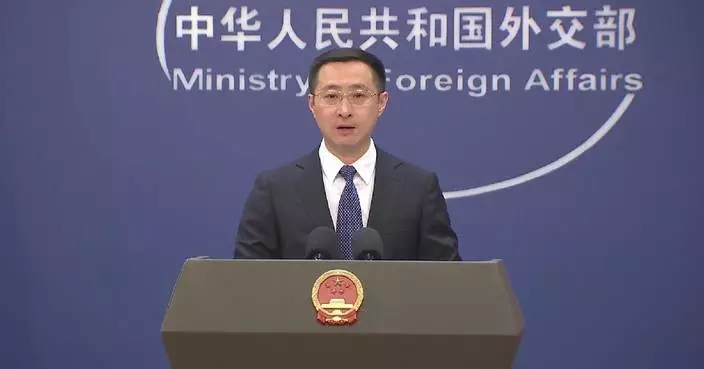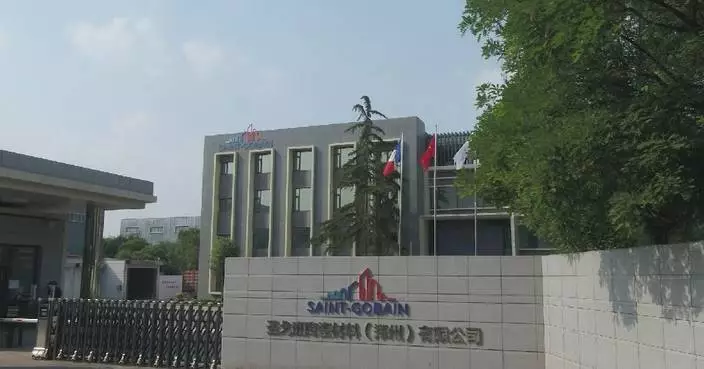People in the war-torn Gaza Strip have been almost driven to the last ditch, as the Israeli army has continued to carry out military operations in northern Gaza this month.
The Israeli military operation in the Jabalia camp and its surrounding areas in northern Gaza has killed more than 770 Palestinians in the past 19 days, the Hamas-run Gaza media office said on Wednesday.
The ongoing operation has wounded more than 1,000 others and left dozens missing, as many civilians were forcibly displaced from their homes and residential neighborhoods, the office said in a statement.
The Israeli Defense Forces (IDF) said in a statement on Oct 6 that as evidence indicated the presence of militants and their infrastructure in the area of Jabalia, as well as efforts by Hamas to rebuild its operational capabilities in the area, the army had begun operating in the Jabalia area.
This operation to systematically dismantle terrorist infrastructure in the area will continue as long as required in order to achieve its objectives, it added.
Under the pressure from the international community, the Israeli army recently started to require local residents to evacuate along so-called safe roads.
The Israeli army requested residents in Jabalia and the surrounding areas to move to southern Gaza via the Salah al-Din Road, after rounding up and interrogating each of them, including children.
Salah al-Din Road, with a total length of 45 kilometers, is the main north-south traffic route through the Gaza Strip, which has become a lifeline for Gazans.
"They (Israeli army) divided us into two lines, one for men and one for women, and we all walked in separate lines. We were monitored by cameras all the time. The Israeli army detained some people, and some of them were released. We walked to a checkpoint and sat on the ground in the hot sun for more than two hours. The Israeli army asked all of us to lower our heads and not to look at them. We handed over our identification, and they searched and checked people's names in a [mobile phone] system in batches of 10 persons. If people checked were not suspected, they could leave," said Mohammad Kahlot, a fleeing refugee from the Jabalia camp.
Although the Israeli army has allowed people in northern Gaza to evacuate since Tuesday, there are still about 150,000 people who are unable to leave or refuse to leave for various reasons.
Wounded and sick people in the northern Gaza Strip need urgent and rapid health and medical care, but it is currently unavailable due to the destruction of the health system and the shortage of medical supplies, according to Wednesday's statement of the Hamas-run Gaza media office.
"[The Israeli army] stopped their tanks in front of our house. We were sleeping, and suddenly the Israeli army shelled the house next to ours. We didn't know what to do, and the Israeli army rushed into the community and forced us out," said Kamal Abu Khalil, another fleeing refugee from Jabalia camp.
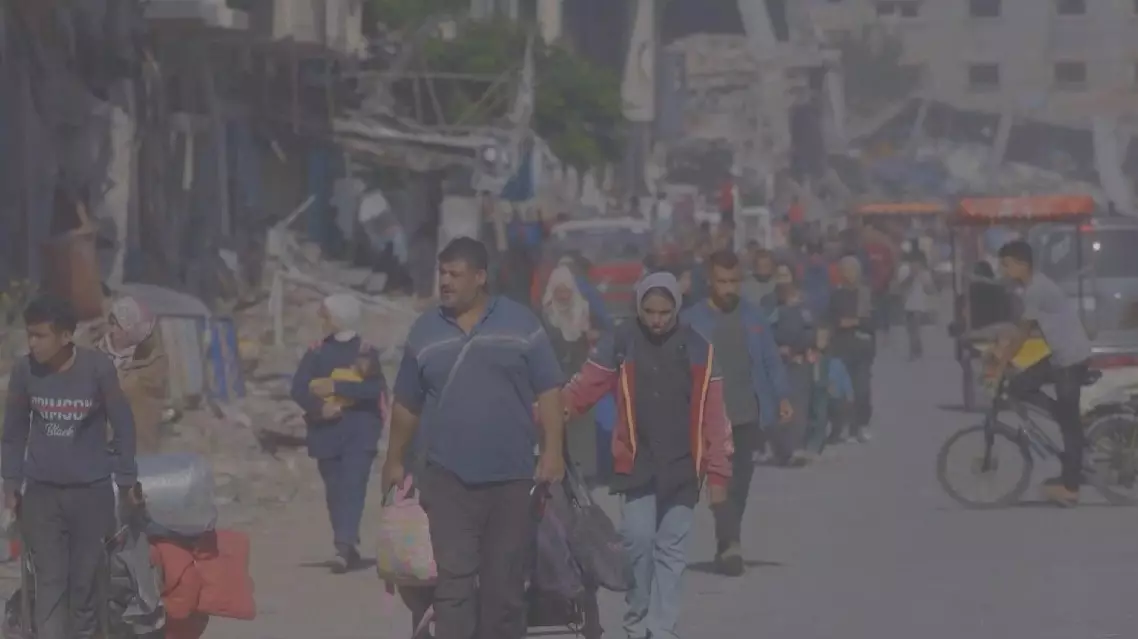
Refugees in northern Gaza forced to evacuate in desperate situation
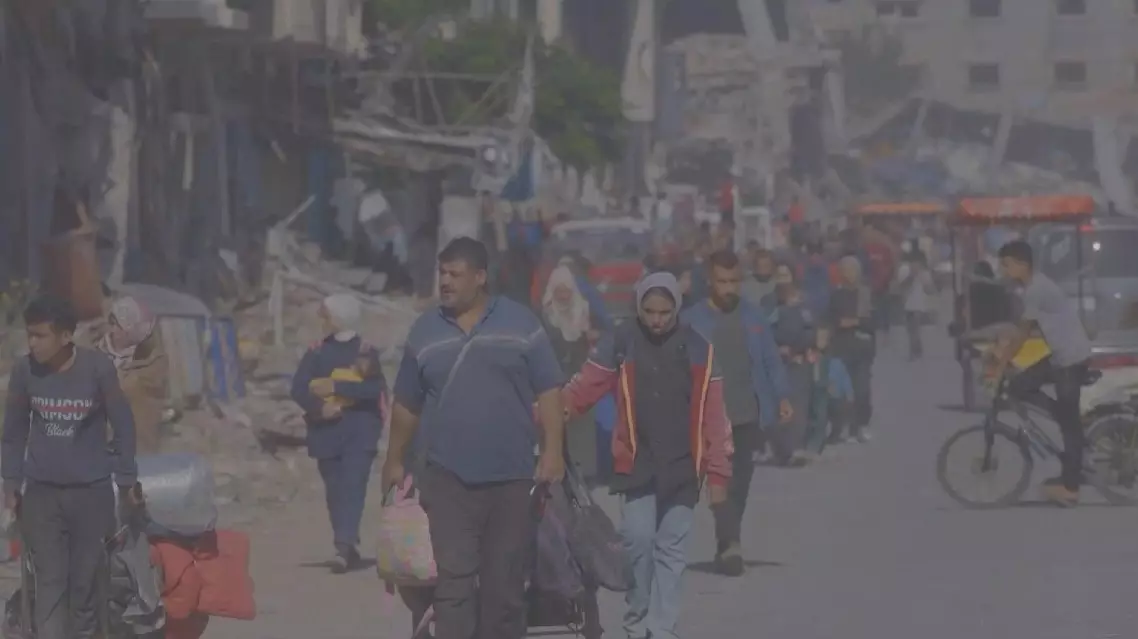
Refugees in northern Gaza forced to evacuate in desperate situation
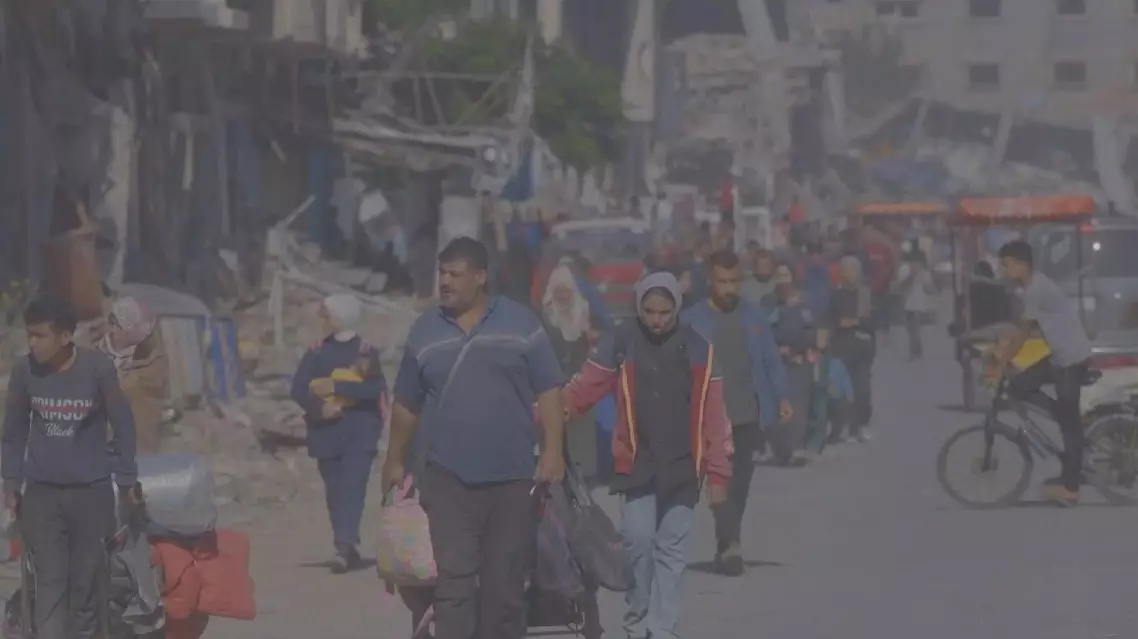
Refugees in northern Gaza forced to evacuate in desperate situation


